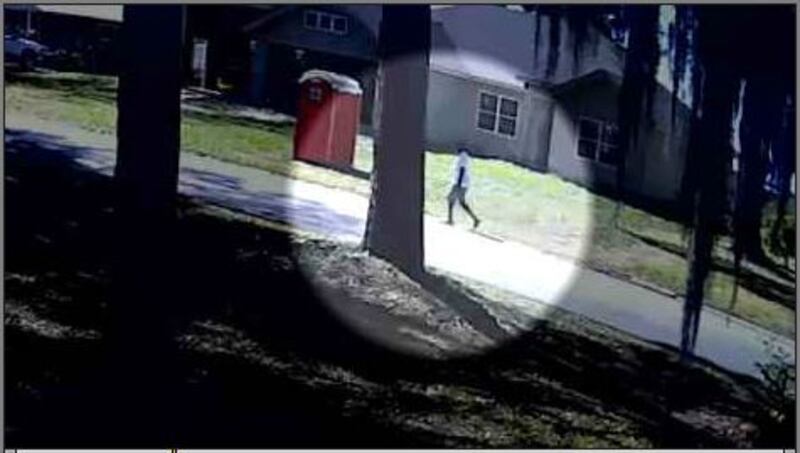GLYNN COUNTY, Ga. — The Justice Department said Monday federal prosecutors are considering hate crime charges against a father and son who killed an unarmed black man in south Georgia.
Ahmaud Arbery, 25, was shot Feb. 23 in Glynn County as he jogged through a Brunswick neighborhood. Travis and Greg McMichael pursued him with guns after they said they thought he was a burglary suspect.
Arbery was shot and killed when he got into a confrontation with Travis McMichael. Both the McMichaels were arrested on murder charges -- but not until 74 days later.
On Sunday, Georgia Attorney General Chris Carr asked the DOJ to investigate how local police and prosecutors handled the case.
On Monday, Justice Department spokeswoman Kerri Kupec said the DOJ would also look into whether to file hate crime charges against the McMichaels. Georgia has no hate crime law allowing charges at the state level. So far, the McMichaels have just been charge with aggravated murder and assault.
[RELATED: Father, son arrested and charged in killing of Ahmaud Arbery, GBI says]
“We are assessing all of the evidence to determine whether federal hate crimes charges are appropriate," Justice Department spokeswoman Kerri Kupec said in a statement Monday.
Kupec's also said the Justice Department was considering Carr's request for federal authorities to investigate how local police and prosecutors handled the case.
In an exclusive interview with Carr, the Attorney General did not mention hate crime laws, but did say that he asked the Department of Justice to get involved in order to have resources on the federal level that may not be available in Georgia.
“There are certain federal laws that may not apply on the state level,” Carr said. “From our perspective, we’re making sure that state law was followed. There’s state law, there’s federal law, and we want to make sure we use all the resources that are available to us.”
Arbery’s father said that to him, it’s clear his son’s death was a hate crime.
“That’s a racial hate crime,” Marcus Arbery Sr. said. “Let’s be real about it.”
[Ahmaud Arbery shooting: GBI describes timeline of arrest of Gregory and Travis McMichael]
The Arbery family’s lawyers, S. Lee Merritt, Benjamin Crump and L. Chris Stewart, issued a statement Sunday night about Carr’s decision to have the DOJ look into the handling of the case:
“We are pleased that Georgia AG Chris Carr has officially asked the Dept. of Justice to investigate the handling, and potential cover-up, of Ahmaud Arbery’s murder. We have requested the involvement of the DOJ since we first took this case. There are far too many questions about how this case was handled and why it took 74 days for two of the killers to be arrested and charged in Mr. Arbery’s death. It is our hope that the DOJ will conduct a comprehensive investigation to determine how and why this case was so poorly handled. Those who were responsible for this travesty of justice must be held accountable. We will continue to tirelessly pursue every avenue of justice for Ahmaud Arbery’s family.”
Carr said the request includes an investigation of the communications and discussions related to the case by and between the Brunswick Judicial Circuit district attorney’s office and the Waycross Judicial Circuit district attorney’s office.
On Sunday, the National Association of District Attorneys condemned the actions of a prosecutor who eventually recused himself from Arbery’s case.
Waycross County District Attorney George Barnhill wrote a letter exonerating the McMichaels on April 3 after saying he had a conflict of interest in the case. Greg McMichael had worked as an investigator at the Glynn County police department for 20 years before he retired last year.
Barnhill initially advised Glynn County police to not arrest the McMichaels before he was appointed to the Arbery case.
“We must strongly disagree with District Attorney George Barnhill’s decision to share his opinion of whether Greg and Travis McMichael should be arrested after he decided to recuse himself from the case,” the association said. “No prosecutor should inject his or her opinion into a pending case to the point where she or he becomes a potential witness and risks compromising the just outcome of a case.”
The Associated Press contributed to this report.
© 2020 Cox Media Group








